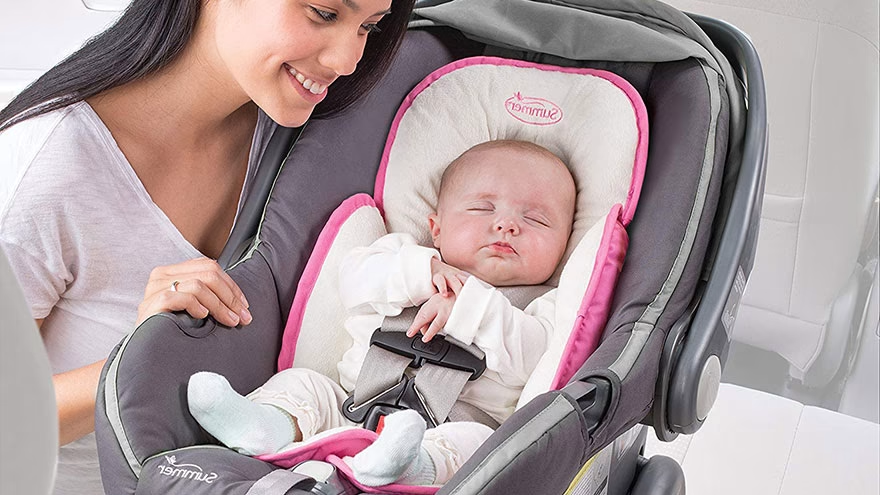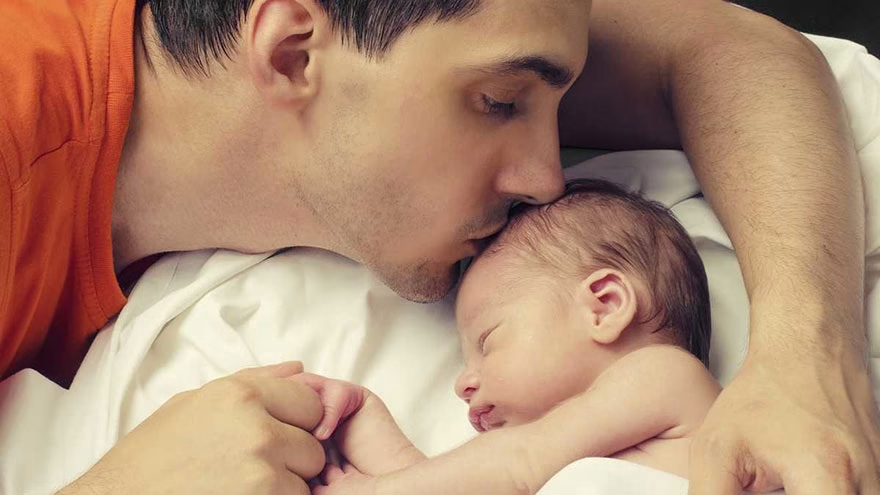Newborns should always be properly restrained in a rear-facing car seat, installed in the back seat.

Rear-facing Carseat
Newborn babies should always ride in rear-facing carseats. Children under the age of two are 75 percent less likely to die or be seriously injured in a motor vehicle accident when riding in a rear-facing carseat, according to a 2007 study led by Marilyn J. Bull, M.D., published in "Pediatrics," the official journal of the American Academy of Pediatrics."Babies can ride in either a rear-facing-only carseat or a convertible carseat positioned facing the rear. Your baby's whole body will be better protected in the event of a crash.
Back Seat İs Best
Always place a rear-facing carseat in the back seat of your car. Placing the rear-facing car seat in the front seat can cause serious injury or death from the side passenger airbag, according to the Children's Hospital of Philadelphia.Even in low-speed crashes, babies riding in the front seat have been killed by airbag deployment, says pediatrician Karen Sokal-Gutierrez M.D., writing for Fisher-Price. Furthermore, she cites a National Safety Council study that found approximately 200 babies and children are saved every year owing to they are placed in the back seat.
Why Face The Rear
Babies' little bodies are different than older children or adults. They have larger heads, fragile necks and their spines are still developing. In an accident, their spinal cord can stretch if riding forward-facing. Even with a strong neck, your baby could be paralyzed or die in an accident.On impact, a front-facing car seat does not hold your baby's head back and allows for serious, possibly fatal, damage to occur.
Safety Laws
All 50 states have child safety restraint laws, including for newborns. Failure to properly restrain your newborn is not only unsafe but may also lead to a hefty fine.Depending on your state -
- or the state you are driving in -
- you could be fined anywhere from $10 to $500 for your first offense, according to the Governors Highway Safety Association. Laws typically require that infants ride in rear-facing car seats and that children ride in the back seat.
You Might Also Like :: How to Keep Newborns Cool in the Summer
Save for later
Found this helpful?
Pin this article to your Pinterest board and come back to it whenever you need a reminder.
Save to Pinterest


